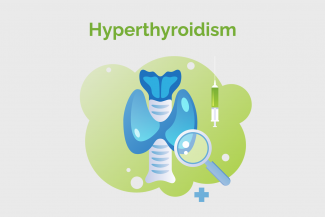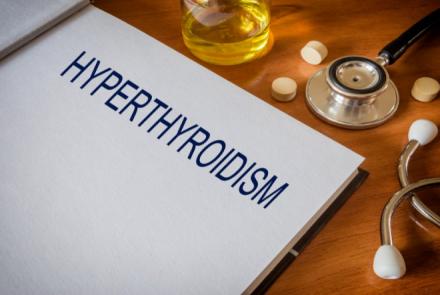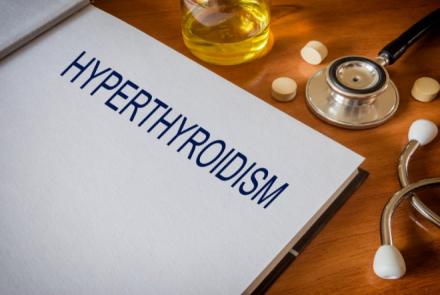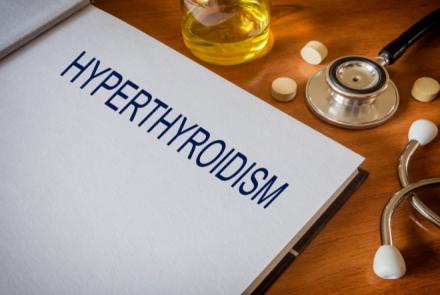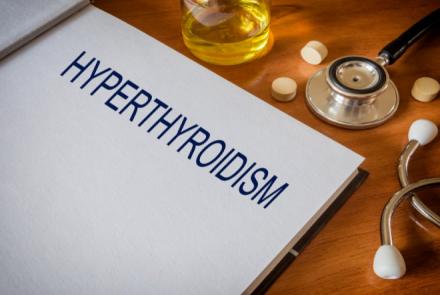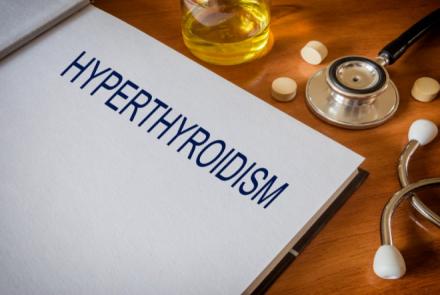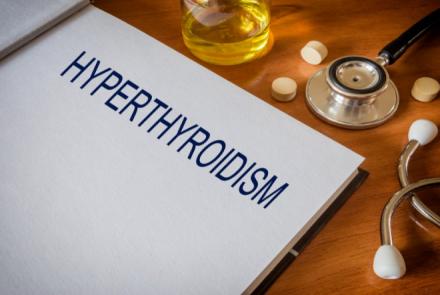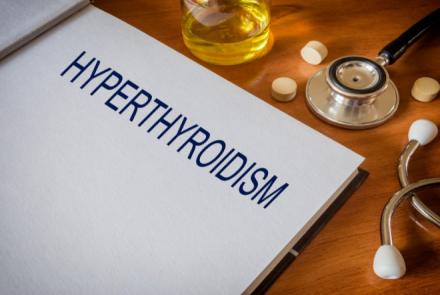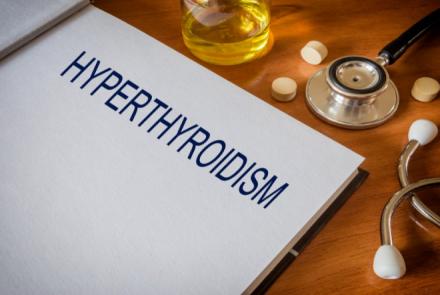Subclinical and overt hyperthyroidism is present in 1.6% and 1.3% of the Indian population according to one study. The equivalent number is 1% in an American population.
Hyperthyroidism or thyrotoxicosis is an overactive thyroid where the thyroid gland produces too much of the thyroid hormones. Hyperthyroidism can accelerate your body's metabolism, causing unintentional weight loss and a rapid or irregular heartbeat.
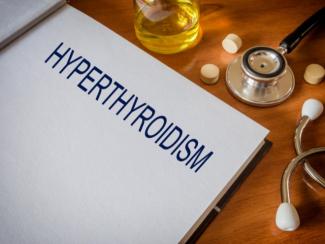
Treatment of Hyperthyroidism
Hyperthyroidism is usually treated with:
- Medicines commonly include Beta-blockers or Antithyroid pills.
- Radioiodine Therapy is an effective method that uses radioactive iodine -131 to destroy the cells in the gland. Can be taken in the form of capsules or liquid.
- Thyroid surgery to remove part of the thyroid gland is less commonly done. Is done only when medications are ineffective or not optional such as people with large goiters or pregnant women.
Note: Often seen side-effect of surgery and radioactive therapy is hypothyroidism.
Complications of Hyperthyroidism:
Most complications occur when the hyperactive thyroid goes untreated. These include:
- Heart problems such as irregular heartbeat, increased risk of clotting, heart failure etc.
- Stroke
- Osteoporosis
- Irregularity in the menstrual cycle
- Infertility and complications during pregnancy.
- Graves' ophthalmopathy, an eye disease which in rare cases can lead to loss of vision.
- Thyroid storm is a fatal condition seen in patients with infection, trauma, pregnancy, surgery or sudden discontinuation of thyroid medication.
Changed
16/Jul/2022
Community
Condition

